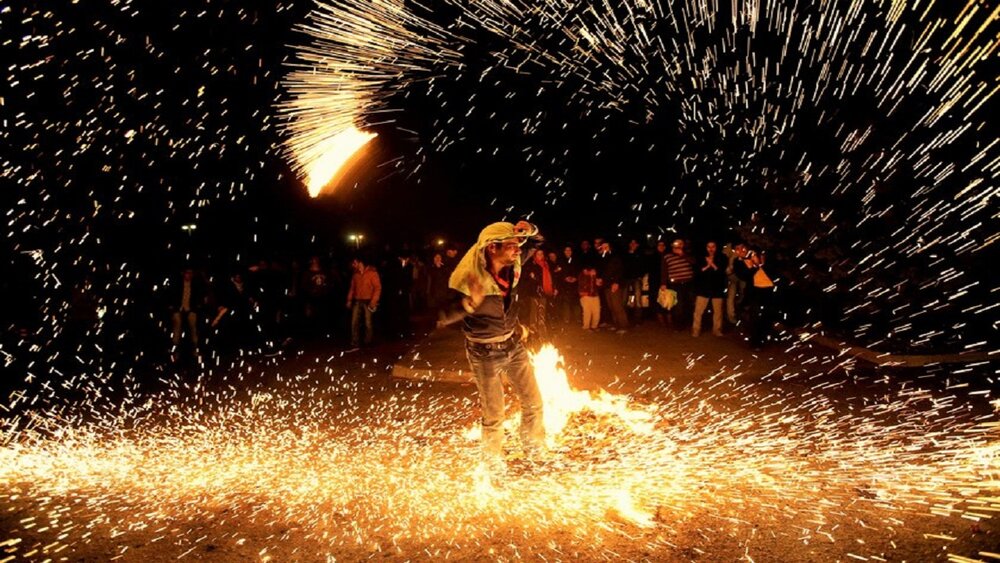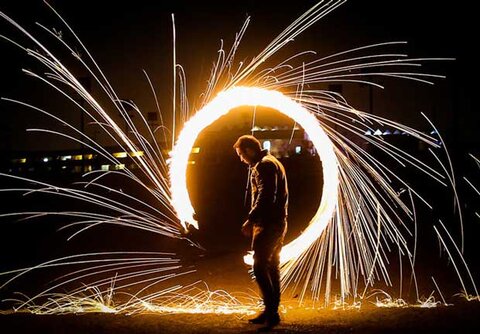Iran (IMNA) - One or two days before the last Wednesday of the year people go out to gather bushes, camel thorn, date-palm leaves (Ḵūr), desert brush (gavan), or rice stalks (in Gīlān); In the afternoon before the start of Čahāršanba-sūrī the brushwood is laid out in the yard of the house, if it is spacious enough, or in a village square or city street; it is arranged in one, three, five, or seven bundles (always an odd number) spaced a few feet apart. At sunset or soon after the bundles are set alight, and while the flames flicker in the dusk men, women, and children jump over them, singing sorḵī-e to az man, zardī-e man az to “[let] your ruddiness [be] mine, my paleness yours,” or the equivalent in local dialects (see Honarī, pp. 24-29; Pūr-Karīm, pp. 18-19). It is believed that this ritual renders them immune for a whole year to maladies and misfortunes that make people pale and thin. In some places fires are kindled on the rooftops, a jug of water is poured on the fire, and burning brush is thrown into the street below; in other places the ritual takes place on hilltops.
No one must blow on the fire; after everyone in the household has jumped over it it is left to die out or quenched with water. If the ritual has been performed in the yard, the ashes are removed by a member of the family, usually a girl who has not yet reached puberty. She carries them in a dustpan to a crossroads, where she scatters them, then returns home. She knocks on the door and the following questions and answers are exchanged: “Who is it?” “It’s me.” “Where do you come from?” “From a wedding.” “What have you brought?” “Good health.”. A very similar custom of jumping over fire is celebrated on the holiday of Derendez (14 February) by the Armenians of Iran.

Such rituals are customary in all parts of Iran. In most villages local musicians and drummers play an accompaniment . The 13th/19th-century author Āqā Jamāl Ḵᵛānsārī prescribed playing a musical instrument to ward off bad luck on this day. Until the 1300s Š./1920s, when carrying arms was prohibited, men used to fire shots into the air as a signal that the brushwood had been set alight. Now, instead of gunshots, there are firecrackers.
According to E. Pūr-Dāwūd, the feast of Čahāršanba-sūrī is derived from the Zoroastrian feast of Hamaspāθmaēdaya, which after the calendar reform under Ardašīr I was celebrated six days before Nowrūz. The choice of Wednesday, as well as the ritual of jumping over fire and “insulting” it, must, however, have originated after the Islamic conquest. The choice of the last Wednesday of the year is likely to have been prompted by an Arab superstition that Wednesdays are unlucky.
Iranica


Your Comment